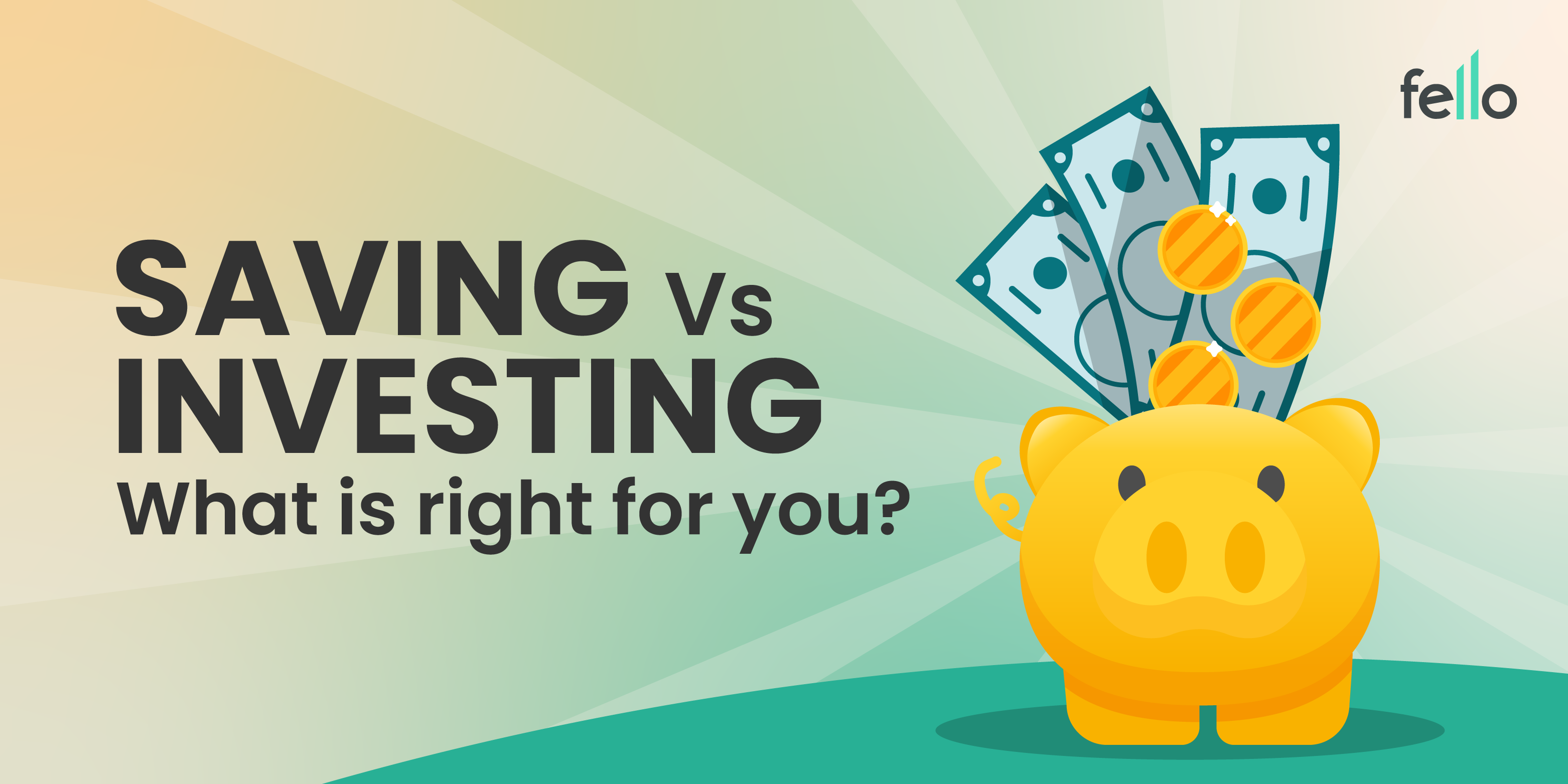Choosing between saving our hard-earned money and investing it for higher returns is a dilemma almost all of us face from time to time. The answer to this question is much harder to find than people think. The answer will depend on many factors: how old you are, where in the world you live, how much money you earn, what your priorities are and what risks are involved with investing your money.
Most of us have a significant portion of our money deposited in savings accounts with interest rates that barely beat inflation rates. However, if you want to make your money grow quicker, then investing can be the way to go. This article will help you understand the basics of saving and investing and choose between saving vs investing. It’s not an exact science, but hopefully, it will put you in the right direction!
What is Saving?
Saving refers to setting aside a portion of the money earned in safe and highly liquid accounts. The funds are earmarked for future use and safeguard against financial instability. Savings take place through safe, albeit low-interest options like savings accounts. Setting aside some funds helps in achieving financial objectives or purchasing assets. However, one must note that savings rarely beat inflation, thus, will not grow your money.

What is Investing?
Investing revolves around using money to buy high-growth assets like stocks, mutual funds, bonds, real estate and cryptocurrency. Investing involves higher risk but also ensures wealth creation. Investments can be long-term or short-term and, depending on the assets you invest in — one can earn much higher returns than a traditional savings account. Investing gives higher returns than saving at the cost of exposing the investor to additional risk.

Understanding the Difference: Saving Vs Investing
While most of us often use the two terms interchangeably, there are, in fact, a few differences between the two. Savings help sustain smaller financial goals like buying a car or a new phone. Investing assists in meeting long-term financial objectives like buying a house or planning for retirement. Next, interest earned on savings barely beats inflation, whereas interest on investments gives higher returns. Lastly, savings are risk-free while investments are not.
Why Should You Save?
Saving and setting aside some money for a rainy day has a lot of benefits. Savings provide a cushion against financial emergencies, and as shown time and again by the COVID-19 pandemic, emergencies always come unannounced. It always helps to have at least six months’ worth of savings to ensure you are financially secure. Savings are also a prerequisite to investing. Make good use of your funds, and your savings can grow exponentially.

Why Should You Invest?
Investment is the stepping stone to realising one’s dreams. Because investments generally have higher returns, you will be able to beat inflation and prevent your purchasing power from declining. The higher returns you get from your investments will ensure that you meet and even exceed your financial expectations. Investing is the best way to achieve long-term goals because of the potentially higher returns relative to traditional savings.

Saving Vs Investing: Choosing the Right Option
By now, you probably already know that both saving and investing are equally important facets of personal finance planning. However, if you want to choose what is best for you concerning your present situation and financial objectives, here is what you should keep in mind.
What Are Your Financial Objectives?
To answer this question, think about what you need right now. If you want to keep aside some money to safeguard against emergencies, saving money is the right choice for you. However, if you are planning for retirement or want to have funds for your children’s marriage, you should invest your money in long-term investments.
When Do You Need The Money?
Carefully analyse your financial goals and categorise them into short-term and long-term goals. If you need the money soon, prioritise safety and liquidity by foregoing better returns. If the money is required after a few years, you are better off investing it somewhere for better returns and the chance to create wealth over time.
What Does This Money Mean To You?
If you want your money to grow over time and help in wealth creation, your best bet will be to take the risk, invest it and potentially earn higher returns. But if you want your money to act as protection against uncertainty, deposit it in a savings account and forget about it.
Do You Understand The Basics of Investing?
While investing money is an enticing proposition, one should never do it without fully understanding the basics. Investing in financial securities is fraught with risk, and someone who does not know what they are doing will surely lose their money. If you do not understand the financial markets properly, it is better to save and earn low returns than to invest and earn no returns.
Conclusion
Now that we know what saving and investing is, we can truly appreciate their importance in financial planning. While saving money is better for the short-term, investing money is more profitable in the long run. What you choose depends entirely on your financial circumstances and objectives. For someone who does not want to take risks and needs money in the short run, saving should be the go-to option. For people who can take the risk for potentially higher returns and those who need their money to grow in the long run, investing is the best option.

